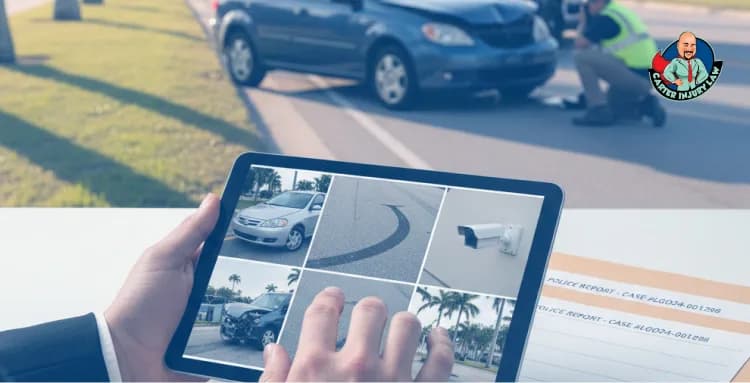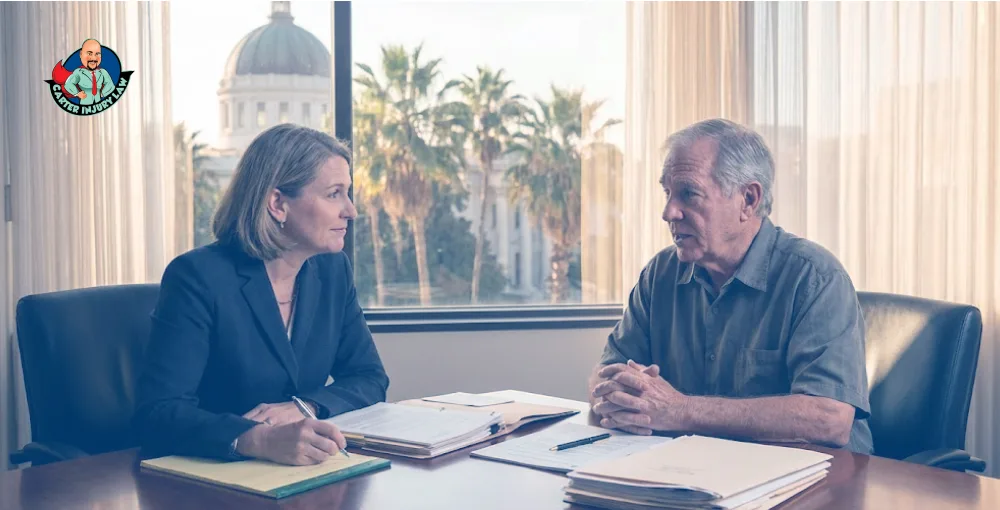Maybe it was a fall. Maybe your back gave out after years of heavy lifting. Maybe your hand slipped under a machine that should’ve been better guarded. Whatever happened, you’re now tangled in a system you didn’t ask to be part of. One that speaks in forms and deadlines when all you really want is to heal and breathe again.
You’ve probably heard the term workers compensation. But what does it actually mean in Florida? Who decides if your injury is “bad enough”? And what happens if your employer or their insurance company starts playing games?
The truth is, a lot of people never find out. But you’re here. And that changes everything. Because once you understand how the system works, you can make it work for you.
And it all starts with one question...Are they telling you the full story?
1) Florida Workers Compensation Lists Benefits Clearly Though the Reality Often Looks Different
Florida’s workers compensation law outlines a range of benefits that look solid on paper. These include payment for necessary medical care, partial wage replacement during recovery, and even job retraining in cases where a person’s work abilities are permanently altered. The system is meant to be a safety net for workers who get hurt doing their jobs.
Even though these benefits are written into law, the process to receive them often tells a different story. Many injured workers report delays in treatment authorizations, limited communication from insurance adjusters, and benefit checks that arrive weeks after they were supposed to.
According to NCCI Florida Data Report, only 59 percent of injured workers return to their previous positions, showing that a significant portion of people are left dealing with long-term disruptions. These numbers suggest that access to care and support does not always match what the statute claims to offer.
2) Reporting Your Injury on Time Makes a Huge Difference in What You Receive
Timing is a major factor in how a workers compensation claim moves forward in Florida. Once a work-related injury occurs, the law gives you a fixed period to report it to your employer. That deadline is not flexible. Even if the injury seems minor or you’re unsure how serious it is, waiting too long can shut down access to benefits entirely.
The Florida Division of Workers’ Compensation has reported that over 25 percent of claims face difficulties due to late reporting or missing information. Informal conversations with coworkers or supervisors often don’t meet the standard required under state law. A valid report needs to be clear, directed to the proper person, and preferably documented in writing. Filing quickly and correctly not only keeps your benefits available, it also creates a stronger case if any part of the process is challenged later.
3) Your Employer Chooses the Doctor and That Can Complicate Recovery
When it comes to medical treatment under workers compensation, most people are surprised to learn they won’t be choosing their own doctor. In Florida, employers and their insurance companies hold the authority to decide which medical providers handle your care. While this setup follows state law, it can create tension between what the injured worker needs and what the insurance carrier is prepared to approve.
Many workers say that these assigned doctors move too fast, focus heavily on return-to-work timelines, and are less concerned with the actual pain or long-term recovery. You do have one opportunity under the law to request a different doctor.
This request must be submitted in writing, and it only applies once. Making that change at the right moment can create a better path forward if you feel your concerns are not being fully addressed during appointments.
4) Your Lost Wages Are Replaced Up to a Limit Though the Math May Surprise You
Florida’s workers compensation system includes wage replacement as part of its core benefits. Injured workers who are temporarily unable to work may receive 66 and two-thirds percent of their average weekly wage, with a 2024 cap set at $1,260 per week according to the Florida DWC. These payments are meant to provide financial stability while you recover.
Still, the numbers don’t always match expectations. The calculation uses pre-injury earnings, which might not reflect overtime, bonuses, or side income. The classification of your injury, temporary total, temporary partial, or permanent impairment, also changes what you receive and how long payments continue.
Late medical updates, missing wage documentation, or communication gaps between the doctor and insurer can affect the timing and accuracy of payments. Staying organized and making sure everything is submitted correctly helps prevent unnecessary delays.
5) Retaliation Still Happens Even Though the Law Says It Should Not
Filing a workers compensation claim is supposed to be a protected action in Florida. The law is clear, employers are not allowed to retaliate against employees for reporting injuries or seeking benefits. Florida Statute 440.205 makes it unlawful to terminate, demote, or harass someone because they used the workers compensation system.
Still, retaliation remains a frequent issue. According to the EEOC’s 2023 report, workplace retaliation is the most common complaint filed nationwide. Workers describe being pushed into different shifts, removed from normal responsibilities, or left out of meetings after filing.
These changes may not always come with a formal explanation, though they can signal that the employer is unhappy about the claim. Keeping a written record of changes in treatment, job duties, or behavior from supervisors can help build a strong case if legal support becomes necessary later.
6) Most Injuries Stay Within the System Though Rare Situations May Open Other Doors
Workers compensation in Florida is built to operate as the sole remedy for most workplace injuries. That means once a claim is filed, it usually prevents the worker from suing the employer directly, even if negligence was involved. This system is meant to provide guaranteed support without needing to prove fault.
There are situations, however, where the standard claim process does not apply. If a third party, such as a contractor, manufacturer, or property manager, played a role in causing the injury, a separate legal claim may be possible. In addition, if the employer failed to carry required workers compensation coverage, the injured worker may be allowed to pursue damages through a different legal channel.
These circumstances remain relatively rare. The NCCI reports that fewer than 5 percent of cases involve legal action outside the workers comp system. Still, these paths should not be dismissed outright, especially when something in the case stands out as unusual.
7) When You Cannot Return to Your Old Job There Are Other Options to Consider
Injuries can change the direction of a career in ways that are hard to predict. Some workers reach the end of treatment and find they no longer meet the physical demands of their old job. Florida law includes options for those facing long-term restrictions.
These include vocational rehabilitation programs that help workers gain new skills or transition into a different field entirely. The Florida Division of Workers’ Compensation offers support services such as job placement assistance, educational grants, and retraining programs.
Often, these programs go unused simply because injured workers are not informed they exist. If returning to your prior role no longer feels realistic, exploring these programs may open a path toward more sustainable employment.
Visit our related posts for more context and next steps
Do I Have to Sue After an Accident? (And Why You Might Not Have To)
Can I Change My Lawyer During a Personal Injury Case in Florida?
8) Getting Help from a Lawyer Can Shift the Process in Your Favor
When medical updates slow down, wage payments stop without explanation, or communication with the insurance company becomes one-sided, many workers start feeling overwhelmed by the system’s complexity. These slowdowns are common, not necessarily because the worker did anything wrong, but because the system rarely moves efficiently on its own.
Having legal support can make a measurable difference. According to the Workers’ Injury Law & Advocacy Group’s 2022 findings, claims involving legal counsel are more likely to result in complete benefit payouts and fewer denials. A lawyer steps in to manage communication, challenge delays, and apply pressure where needed.
Legal assistance does not guarantee a perfect outcome, though it often brings clarity and control to a process that otherwise feels hard to follow. When the system stops working as it should, legal guidance becomes more than just useful, it becomes necessary.
What Carter Injury Law Wants Florida Workers to Know Before Giving Up on Their Claim
Getting hurt on the job often leads to more questions than answers. Some workers wait weeks without clear updates. Others get sent to rushed appointments that barely address the pain. The law lists benefits like wage replacement and medical care, though those promises can feel distant when forms go missing or calls go unanswered.
Carter Injury Law wants injured Florida workers to know they don’t have to settle for silence or stress. You can challenge a denial, request a new doctor, and take steps when retaliation happens. We’re here to keep your claim from falling through the cracks. Contact us to find out where your case stands and what you can still do.












